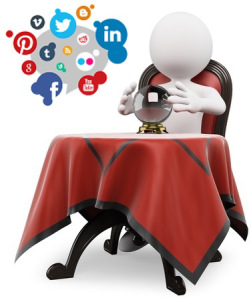 A few weeks ago I was asked “Why do you work in marketing?” and I struggled. Truth be known, I don’t know why I am a marketer.
A few weeks ago I was asked “Why do you work in marketing?” and I struggled. Truth be known, I don’t know why I am a marketer.
In college, I studied product design, innovation, and marketing, so I kept my options open. I loved design, but I was told it was too competitive. Oh, the confidence they had in me!
At one point in my life, I really wanted to be an air hostess. But as my husband always reminds me when we fly, I’d make a dreadful air hostess; my fingernails are deeply embedded in the seat in front of me throughout takeoff, landing, and turbulence.
When I was offered my first job starting out with IBM, it steered my career into technology marketing, and the rest, as they say, is history.
So that’s why I am a marketer.
In hindsight, marketing was probably the best-suited career for me. I have a service-minded attitude, I always think in the context of my customer (either internal or external), and I love communicating – simplifying complex technology messages into stories that people can follow and understand. So perhaps I found the right path without realizing it.
However, I’ve noticed trends over these past few years that have triggered me (without realizing it until I was asked) to distance myself from traditional or conventional marketing. I’ve been trying to escape!
I was quoted at an event last year as saying, “I don’t believe the marketing department will exist in the near future; it will become the engagement department.”
The Definition Of Marketing
When you read the definition of marketing, it’s all about “the business of promoting/selling/advertising.” Well, guess what: We’re in an age now where people don’t need to be sold to. If the product or service is good enough, they’ll discover it via their peers, their networks – people who influence their decisions. Every decision that requires a personal commitment pretty much involves a Google search and review process, whether it’s a holiday purchase, a business purchase, or a job search.
Companies don’t need to do market research. If they have a good enough social strategy, they’ll have built a community of advocates, product users, critics, innovators, and developers. Ideas come flowing through a community. A product develops itself based on constant feedback.
Marketing Becomes Engagement
In my view, businesses of the future are moving away from marketing and looking to engagement. For me, that starts with three business essentials:
1) A genuinely good product and/or service – No fakes. In the age of digital transparency, you’ll get found out.
2) Engaged workforce – These guys deliver the customer experience. Get them on your side.
3) Customer journey – Mass scale personalization is the key to winning in a digital buying world. The closer you get to knowing your customer’s journey, the more successful you will be.
So forget marketing and sales alignment. It’s about holistic business alignment across all functions – getting them all to work toward a common goal and focusing on delivering a great customer experience.
What I believe marketing will orchestrate in the future will impact the talent the organization attracts through good employer branding. It impacts the service levels provided through social customer support. It impacts the content shared by sales to their networks in order to keep relationships strong and active.
The entire customer journey and experience becomes the role and purpose of marketing – not how many leads were generated in Q4 2014 or how many website visits came from a paid search campaign. These are contributing metrics, not defining measures of success.
So why am I a marketer? Well, I don’t think I am anymore.
This article was syndicated from Business 2 Community: The End Of Marketing As We Know It Today?
More Sales & Marketing articles from Business 2 Community:





